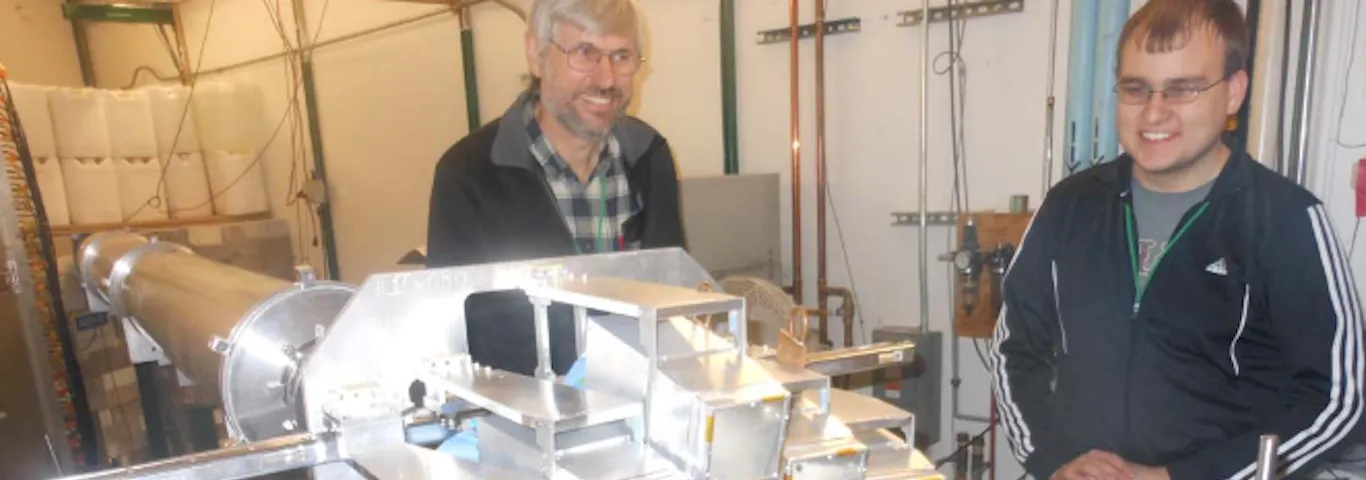Lee Sobotka, professor of chemistry and physics, and Robert Charity, research professor of chemistry, were recently awarded a three-year $1,365,000 grant from the Department of Energy to support their studies of nuclear reactions and nuclear structure.

Sobotka, the project’s principal investigator, and Charity, co-investigator, explore the mechanisms by which common elements, such as carbon, are formed from unstable, structurally unusual, intermediate isotopes, like beryllium-8. The latter, though an intermediate to the creation of carbon-12, only lives about 10-18 seconds on average.
“Our work involves both reconstructing the structure of, and reactions producing, stable and unstable nuclei. Learning about unstable nuclear configurations, and the reactions that produce them, allows us to understand why we have the isotopes that exist on Earth and why some are plentiful, and generally inexpensive, and others rare, and generally expensive,” Sobotka and Charity wrote in their project summary.
The team’s systematic study of unstable nuclei has allowed for the discovery of three new isotopes (O-11, Na-17, and Mg-18) and contributes to the improvement of nuclear models. Better models in turn support more accurate extrapolations about nuclear behavior that may be difficult to access experimentally. One particular focus is on highly-excited resonances in nuclei that are the gateway to synthesizing elements, especially those like carbon, that make human life possible.




